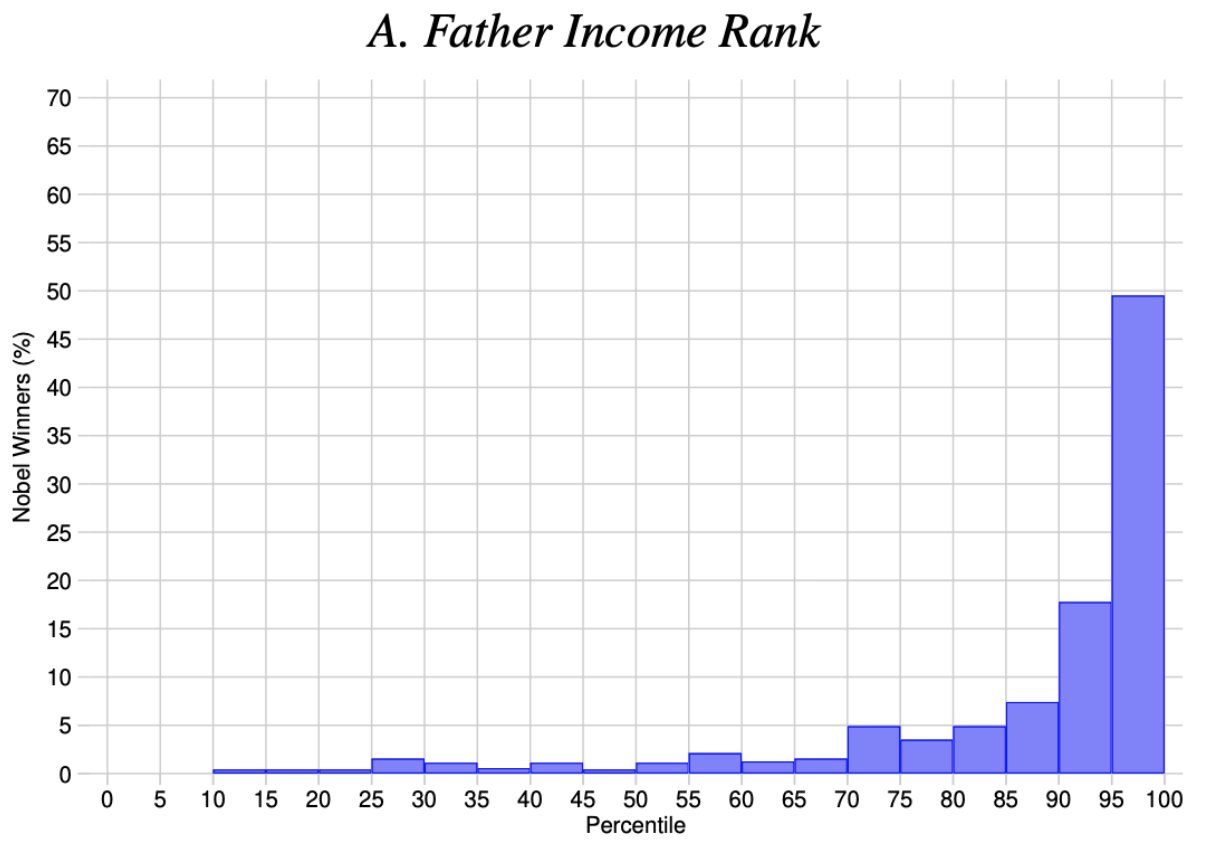this post was submitted on 09 Oct 2024
174 points (99.4% liked)
Science
23489 readers
2 users here now
Welcome to Hexbear's science community!
Subscribe to see posts about research and scientific coverage of current events
No distasteful shitposting, pseudoscience, or COVID-19 misinformation.

founded 5 years ago
MODERATORS
you are viewing a single comment's thread
view the rest of the comments
view the rest of the comments
 I know, but the size of the effect is really staggering.
I know, but the size of the effect is really staggering.
I think this is significant for two reasons. First, the size of the effect: I think we'd all have guessed that it would skew pretty heavily toward the top of the income distribution, but the degree to which it is skewed to the very, very top is still pretty staggering. Second, I think there's still a popular perception--both among the general public and parts of the scientific establishment itself--that science is the ultimate meritocracy: it doesn't care about who you are or where you come from so long as you're smart and interested in The Truth. This blows that narrative out of the water, which is a good thing.
Anyone who believes that narrative is a complete rube
As someone who used to believe this narrative, yup! Complete rube combined with very sheltered upbringing will sure do it!
Here's a fun (not really) fact that really put the final nail in the coffin on this idea for me: you know how grad students are supposed to be poor? Like, that's the stereotype, as a grad student you're super poor but then later you get a high-paying job making the years of poverty worth it. Well. Grad students really aren't that poor. When I was a grad student, my partner worked at the same university I did, as a groundskeeper. His coworkers were mostly middle-aged guys with families. I made more money as a grad student than he did as a groundskeeper. Sure, compare a grad student stipend to a tenured professor salary and the stipend looks tiny, but compare it to the yearly earnings of a non-faculty employee and suddenly you see that grad students are actually fairly well paid.
So, how does this fact (grad students aren't actually that poor, relatively speaking) have any bearing on the narrative that science is open to everyone and doesn't care about your background? Well, if that narrative were true then you'd have more grad students coming from poorer families who would not feel that a grad student stipend is a tiny pittance. But you don't. Most grad students feel like they're living very cheaply, even if that's not really true.
None of this is to say I think grad students should be paid less. Most of them are underpaid and overworked. It's simply to say that the non-faculty employees of a university should be paid much, much more.